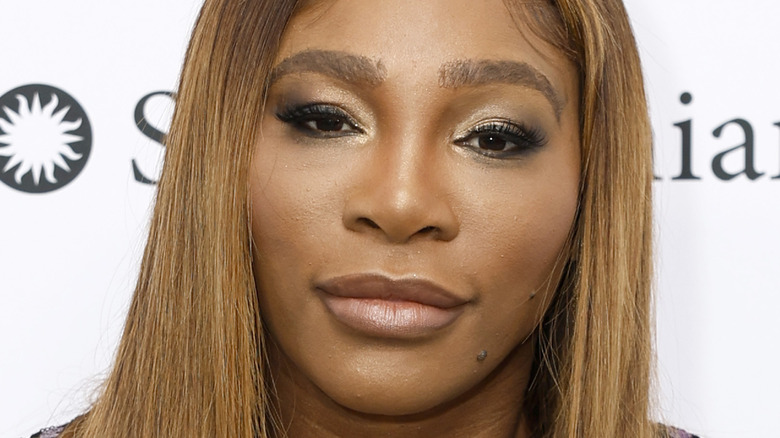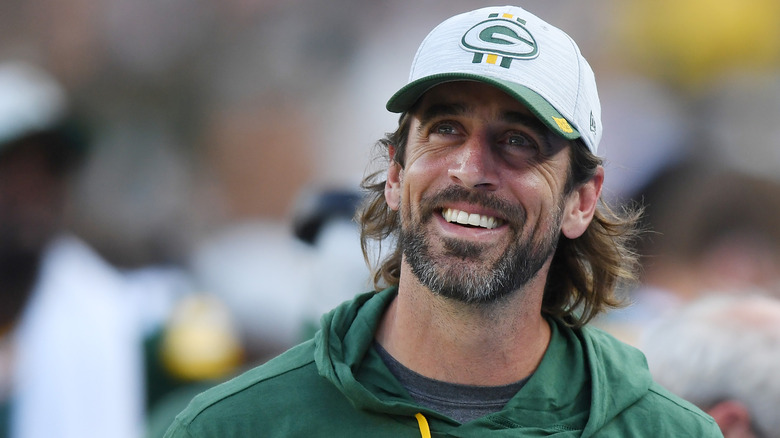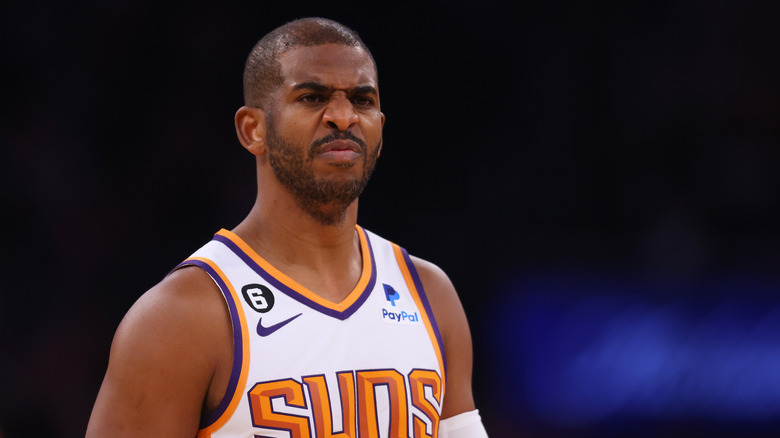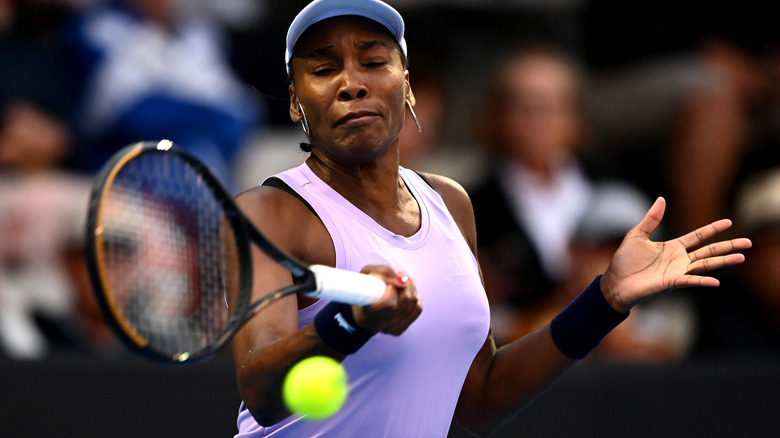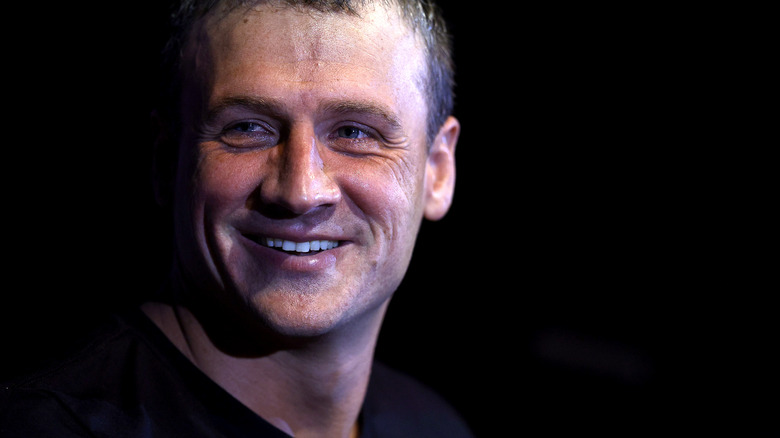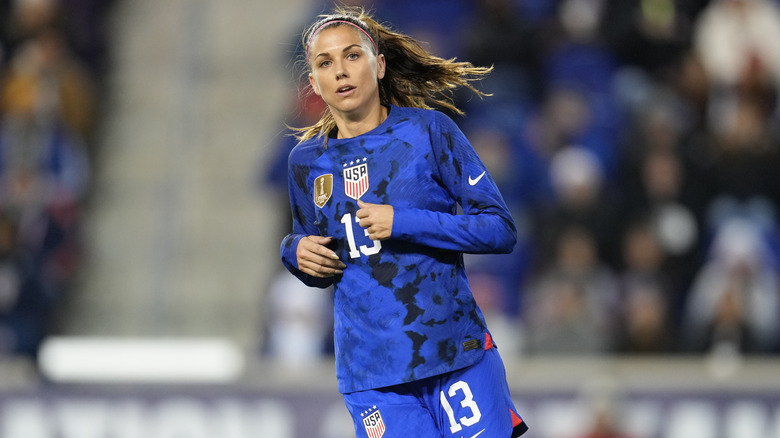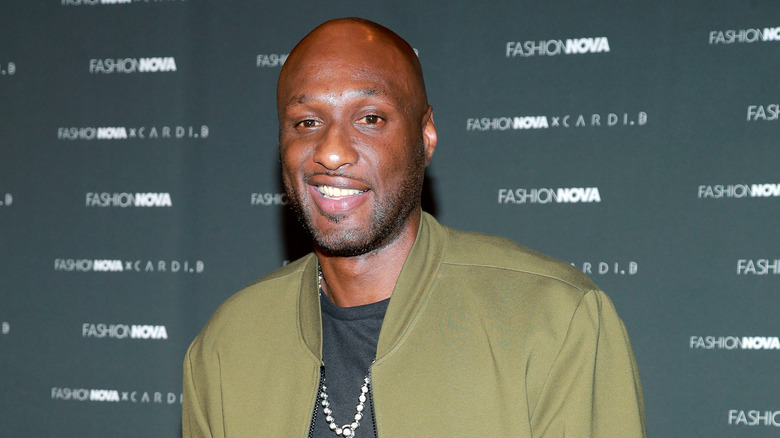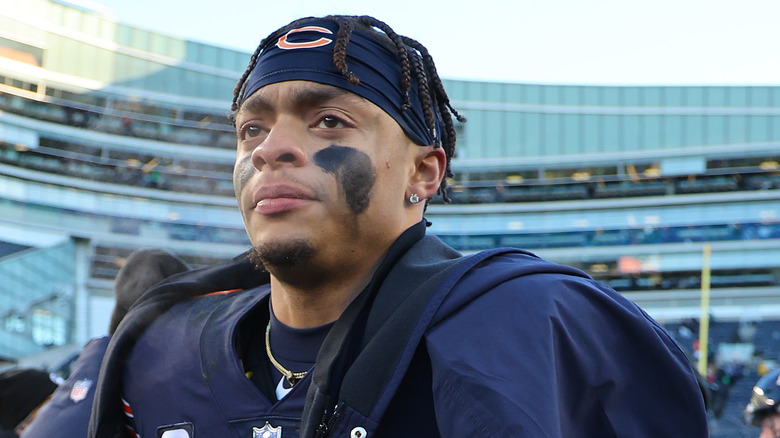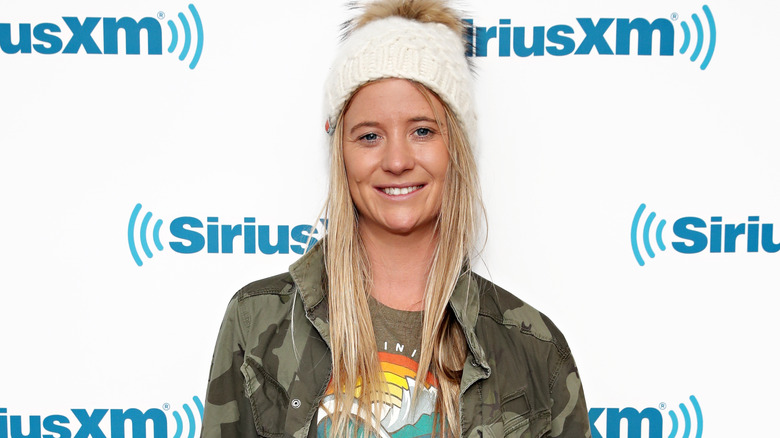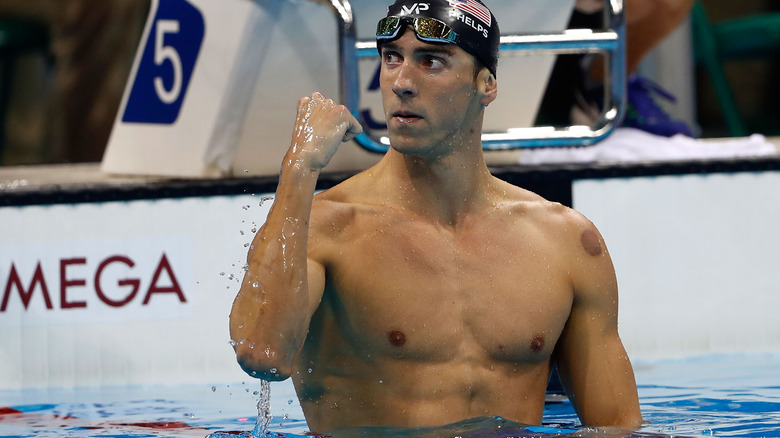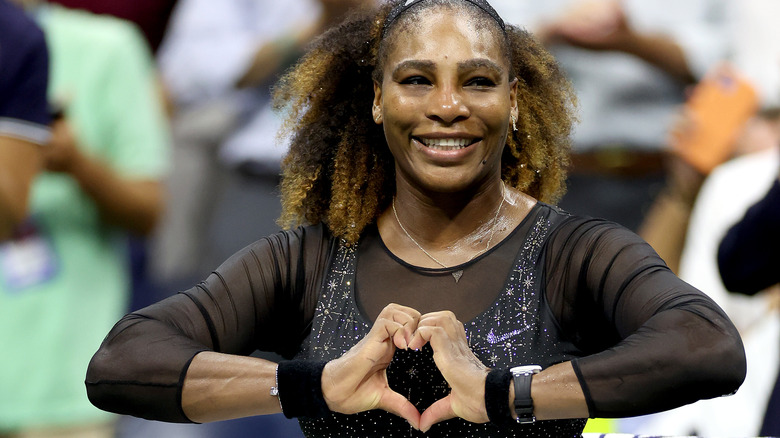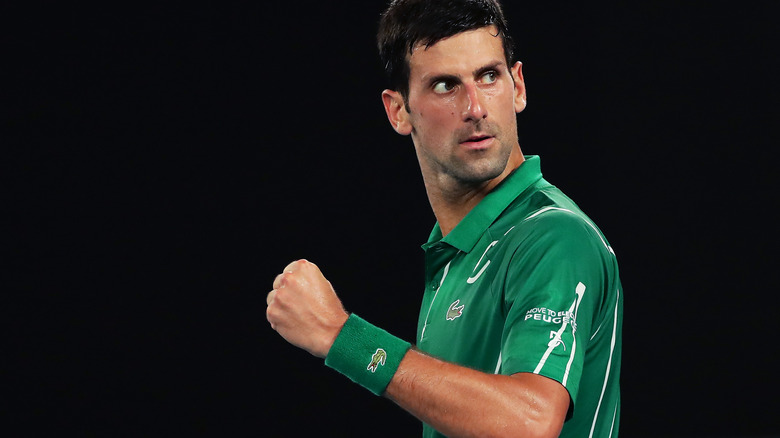Athletes Who Changed Their Game By Changing Their Lifestyle
Food is arguably the most important part of any athlete's day. Their careers depend on the health of their bodies, and their bodies are only as healthy as the food they ingest. There is no one-size-fits-all when it comes to diets -– especially for professional athletes -– but many opt for clean vegan or plant-based diets. Studies repeatedly show that going plant-based can help with recovery time and all-over performance. Case and point: In 2015, 15 players on the Tennessee Titans went vegan and never looked back.
"When they realized that their production didn't go down, their stats didn't go down, they didn't die on the field, they were like 'sign me up' because the food already looks and smells good," said Charity Morgan, a Le Cordon Bleu-educated chef and wife of linebacker Derrick Morgan, who convinced the team to go vegan, per ESPN. "Last year was a test run for a lot of the guys to realize you can be plant-based and successful." Though the 2015 season was not good for the Titans (they were last in the league), the diet was a hit with the players who felt physically and mentally better by eating "cleaner."
Not all athletes turn to veganism to help them go the extra mile. Some rely on gluten-free diets, junk food diets, and even holistic cleanses to keep them playing their best. Below we dive into the diets the best of the best follow to keep them at the top of their game.
Aaron Rodgers did a 12-day cleanse
On this list, you'll find plenty of athletes who adhere to super clean diets, vegan diets, high-protein diets, or even diets high in carbohydrates — but Aaron Rodgers, star quarterback for the Green Bay Packers, is probably the only one on this list who follows a diet of which Gwyneth Paltrow would approve. Rodgers takes "eating clean" to a new level and regularly engages in cleanses to help keep his body in tiptop shape.
While it's important to note that most doctors advise against cleanses as a form of medicine, Rodgers swears by it. At the start of the 2022 season, Rodgers informed reporters that he had recently completed a 12-day cleanse (also called a Panchakarma), a traditional Indian cleanse that revolves around the idea of rebalancing the body, per Packers News. During the cleanse, Rodgers avoided alcohol, caffeine, sugar, dairy, and anything cold.
"I just came out of a 12-day cleanse where you're eating a specific diet and going through these treatments," Rodgers said during an appearance on the "Paul McAfee Show." "[The cleanse] takes away mental stress," he said. Rodgers was able to re-center himself and re-focus on his goals as leader for the 2022 season with a fresh feeling of gratitude for his body and sport. "When I come out, just intense gratitude. That was just where I was at. Felt an intense amount of gratitude."
Chris Paul went vegan late in life
NBA star Chris Paul decided to try out a plant-based diet in the hopes that it would improve his playing ability. "So far, so good. Not easy. But for me, it's working," he told Men's Health. Paul was inspired to give a healthier lifestyle a shot by data suggesting it might help him with his recovery time. "For me, being as competitive as I am, I looked at this and I was like: hold up, let me try this out."
To his surprise, Paul saw his prowess on the court improve as he cut out meat. "I do feel really good right now. I think the biggest change for me is the aches and pains of the season. I started working out and training, and I got to Monday, Tuesday, Wednesday, and I thought, am I not lifting hard enough?" he said. "Am I not training hard enough? Why am I not achy? I ain't trying to say you have to stay with it, but give it a try." It turns out the reason he wasn't achy and swollen was all thanks to cutting out inflammatory meats and dairy.
Besides promoting a vegan diet, Paul is capitalizing on it. In 2022, he launched Good Eat'n, a food line available through the delivery service Go Puff, per The Beet. The line includes options designed to help vegan-curious people ease into a more plant-based lifestyle, such as nacho cheese-flavored chips and porkless BBQ pork rinds.
Venus Williams is plant-based
Venus Williams has been plagued with injuries and illnesses throughout her career. In 2011, after years of tests, Williams was finally diagnosed with Sjogren's Syndrome, a disease that affects her immune responses. While the tennis star and her doctors worked together to find an appropriate medical approach, Williams decided to switch up her diet in the hopes that she'd regain some energy. "When I was diagnosed with Sjogren's Syndrome, I became obsessed with doing research and exploring superfood ingredients that helped with my recovery. I would experiment with different recipes until I found a combination that tasted great, improved my health, and allowed me to get back to tennis," explained Williams while speaking to Women's Health.
Williams doesn't think of herself as vegan, though. She prefers the term "chegan," meaning a vegan -– but one who cheats. Williams was so inspired by the difference she felt after switching up her own diet that she started a health food company to help others do the same. "I learned so much about the food system and how it can affect your body and your health. As an athlete, if I'm not at optimal performance, someone else will be," Williams told Fast Company. Happy Viking, her company, sells mostly superfoods and probiotic-rich smoothies aiming to make the transition into a clean vegan lifestyle easier for anyone who is interested.
Ryan Lochte relied on McDonald's
On a list full of vegans, Ryan Lochte takes the cake for the least healthy diet we could imagine. Instead of powering up on plant-based protein options like so many of his colleagues, the Olympic swimmer used to derive most of his nutritional value from McDonald's -– morning, noon, and night. Just like Michael Phelps (and many other athletes), Lochte needs thousands of calories a day in order to sustain the amount of physical stamina his sport demands. Unlike most athletes, though, Lochte isn't concerned with eating clean. The Wall Street Journal reported that during the Beijing Olympics, Lochte ate mostly McDonald's for every meal and still managed to win four gold medals.
Four years later, though, at the 2012 London Olympics, Lochte had ditched the junk food for some healthier options in the hopes that it would improve his game. "I'd eat a whole bag of chips before practice," he told People, adding that he'd usually have an additional "two or three McDonald's egg McMuffins, some hash browns, and maybe a chicken sandwich." Tasty as that may have been, Lochte began relying on complex carbohydrates like oats, fruit, and a simple scramble in the morning rather than anything too heavy or greasy. A few years later, for the Rio Olympics (his last), he'd cleaned it up even more. "You know I'm not eating the McDonald's or the Burger King anymore," he told the outlet. "I'm actually watching the carbohydrates, the protein that I intake, so I'm definitely watching what I eat."
Alex Morgan went plant-based to recover faster
Like so many other athletes, Olympic soccer star Alex Morgan went plant-based when her career began to take off. For Morgan, though, it wasn't about animal rights or clean fuel. It was about finding a way to recover as quickly as possible so as to optimize her time on the field. "There's not time for anything else because you need to make sure your body and mind are focused and ready," Morgan said in an interview with Insider.
The Olympian's day-to-day diet starts with a healthy dose of berries and coffee in the morning. "My daughter is actually obsessed with fruit, and so am I," she told Deglazed. "She will ask for strawberries, blueberries, and bananas all day every day, so I end up eating a lot of fruit with her — that's something we're always snacking on." For lunch, she opts for a leafy salad with plenty of Vitamin K, with an occasional sweet potato on the side for antioxidants.
Most importantly, though, Morgan doesn't deny herself anything. While her diet may not allow for any animal products, it's still full of junk food and sweets. "People think that athletes eat perfectly and are always just on it with nutrition and take care of their bodies through nutrition like crazy," she said during her Deglazed interview. "As much as it's on my mind and I'm aware of it, if I want a cinnamon roll or a cookie, I'm going to have it."
Lamar Odom always has candy on hand
Lamar Odom isn't concerned with keeping his diet super clean. Instead, he relies on his sweet tooth to provide him with the bursts of energy he needs to stay on top of his game. Odom is now retired, but during his career, he was notorious for snacking on candy all day long. According to Bleacher Report, Odom would order his assistant to stock his SUV with his favorite candies after every game. Odom's love for sugary sweets goes further than just an after-game treat. At one point, he was reportedly so dependent on the sugar high and burst of energy the candy gave him that his playing would visibly suffer if he wasn't regularly snacking throughout the game.
"It's funny because the games I played well were the games where I ate candy for breakfast," Odom told the Morning Call in 2009. "It's the reason why I got double digits in points and rebounds. I guess I'm going to have to eat candy for breakfast in order to play well." He did admit that he's careful not to overdo it, though. "People making it like I sit there and eat a whole plate of candy before I play a basketball game," Odom added. "I don't think anyone could do that." As far as he was concerned, if it kept him playing well, it was worth it.
Justin Fields wants to go pro – with plant-based foods
NFL player Justin Fields went plant-based in 2020 and has never looked back. "During the middle of the pandemic, I went back home to Georgia, and my family wanted to try a plant-based 28-day detox," Fields explained to Insider. "After the 28-day period, I liked the results that it gave me physically but also internally and how it felt inside." While the transition wasn't easy, the decision to stick to it was –- especially when he saw how well he recovered. "After going plant based, I realized that it helped me fight inflammation and shorten my recovery time. I was surprised by how quickly I was starting to recover, and my trainers were shocked too. It's sort of like a superpo," he said, per GQ.
Fields wasn't content to keep the benefits of plant-based nutrition to himself, though. He's also in the process of opening a plant-based pizza shop in Chicago. The pies won't include dairy cheeses, but they'll be just as tasty as any Chicago deep-dish, he assured Insider. "You rarely see famous Chicago pizza restaurants that have vegan cheese on it," Fields explained. "I hope so one day [to open my own vegan pizza shop]. That would be awesome. We would definitely create more knowledge to other people that think vegan stuff is nasty. So if I were able to do that, we could get the word out, and people would try it, and more people would think about going vegan or plant-based."
Hannah Teter did it for the animals
Hannah Teter didn't go vegan for her sport; she did it for the animals. The seven-time Olympic gold medalist went vegan after watching "Earthlings," a documentary about the meat industry. "I had no idea how intense and how horrible factory farms are. I have such a love for animals that I can't justify having their heads cut off for me, and the slavery of the dairy industry motivates me to go more vegan," she told HuffPost. Since then, she's tried to keep it clean and natural. Teter revealed to People that she opts for tasty veggies, stir fries, and quinoa for most meals. Her devotion to the environment extends to her day-to-day life as well. Teter told the outlet that she often sleeps in a yurt and surrounds her bed with flowers in order to feel closer to nature.
Happily, though she didn't change her diet for her spot, Teter's snowboarding improved after cutting out all meat and dairy. "I feel stronger than I've ever been, mentally, physically, and emotionally," Teter said. "My plant-based diet has opened up more doors to being an athlete. It's a whole other level that I'm elevating to. I stopped eating animals about a year ago, and it's a new life. I feel like a new person, a new athlete."
Michael Phelps is never not eating
In a list of athletes who mostly eat super clean (minus Ryan Lochte, of course), the amount of food a professional athlete needs to eat can get lost in the weeds. Well, not if you're Michael Phelps. While training for the Olympics, Phelps didn't adhere to a specific diet. He ate everything from dairy to meat, and carbs to fat, but he was very conscious of how much he ate. On an average day, Phelps would ingest around 10,000 calories, per NBC. To put that in perspective, the amount of recommended calories for an average moderately active man is somewhere between 2,000 and 3,000 calories, per VeryWell. So Phelps was ingesting around 5x the amount of calories as the average man on the daily.
Exactly how did he meet those numbers? Well, first, it helps that Phelps was always hungry, thanks to the number of calories he burned working out every day, so it follows that he needed to eat at least as much as he was burning. According to the athlete, who wrote extensively about his diet in his autobiography "Beneath the Surface," on a typical day when he'd visit Pete's Grille — one of his Baltimore favorites for breakfast — he'd order just about everything. "Start with three sandwiches of fried eggs, cheese, lettuce, tomato, fried onions, and mayonnaise," he wrote. "Add one omelet, a bowl of grits, and three slices of French toast with powdered sugar; then wash down with three chocolate chip pancakes."
Serena Williams sometimes cheats
Serena Williams was inspired to go plant-based in 2013 because of her sister's, Venus Williams, aforementioned dietary restrictions. It was a complete overhaul of her diet, and she became so much healthier. "For me, 'green' used to mean 'yuck.' But I've incorporated a lot of raw things in my diet this year," Serena told Bon Appetit. Before a match, the tennis star is too nervous to eat, so she makes sure she carbo loads the night before. She keeps it healthy, though, opting for brown rice or quinoa over pasta and bread.
As for becoming fully vegan, that's a work in progress. While Serena has definitely made strides to lower her meat intake, she doesn't want to deny herself anything –- especially her favorite chicken dish. "I put whole cloves of garlic all over the [chicken]," Serena explained. "Some under the skin, some inside the chicken, some inside the pan. I put butter on top of the bird and butter inside the gut. It's not a light dish! I add only a little salt and pepper, not too much. Then I throw small baby onions everywhere, drizzle olive oil on top, and roast away."
Most importantly, though, Serena tries to take a healthy approach to food. She'd prefer to focus on something other than her diet. "You need [food] to survive," she told Women's Health in 2021. "And [that's] very hard to live by, 'cause I definitely love to snack, but this is what I want. These are my goals."
Carl Lewis cut out meat
Carl Lewis is one of the best runners of all time and one of the most devoted vegetarians. To run as far and as fast as the nine-time Olympic medalist, though, you need seriously high levels of protein –- which most people get from meat.
For years, Lewis struggled with his weight and protein intake, fluctuating between a plant-based diet and a meat-heavy diet. "When I grew up in New Jersey, I always enjoyed eating vegetables and was influenced by my mother, who believed in the importance of a healthy diet even though we ate meat regularly because my father wanted it," he wrote in the forward to "Very Vegetarian," per Southern Vegan. "At the University of Houston, I ate meat and tried to control my weight the wrong way -– by skipping meals. Frequently, I would skip breakfast, eat a light lunch, and then have my fill at dinner — just before I went to bed."
After Lewis became a vegetarian, he started noticing that he was performing better than ever and beating all of his records. "I completely changed my diet at 28 years old," he told Oprah Winfrey in an interview. "I set all my personal records at 30 years old." He's realistic about how hard it is to stay in shape and follow such a strict diet, though. During the interview, Lewis admitted that having a private chef was crucial to him staying on track.
Novak Djokovic refuses to eat gluten
Novak Djokovic -– problematic on the court but not in the kitchen. The tennis pro is just as well known for his, shall we say, unorthodox health standards as he is for his backhand. Djokovic has been at the center of scandal since 2020 when he hosted a tennis tournament amid the COVID-19 pandemic despite social distancing orders. The following year, he shocked fans by refusing to get vaccinated. As of 2022, he is still not vaccinated and thus was not allowed to play in the U.S. Open. "I was never against vaccination," he clarified to the BBC. "But I've always supported the freedom to choose what you put in your body." As problematic as his stance has been, though, it makes sense in a way. Djokovic is an athlete; therefore, his body is his greatest asset, so he needs to be picky about what he puts in it.
That extends to his plate as well. Djokovic eats meat -– but sparingly. He completely avoids gluten and dairy, something he credits to his success on the court. The grand slam champ has capitalized on that claim too. He's written entire books about his diet and even released his own line of plant-based gluten-free snack foods. In his book "Serve to Win," Djokovic claimed that he also makes sure to pray before every meal to enjoy his (gluten-free and generally organic) food as mindfully as possible.

